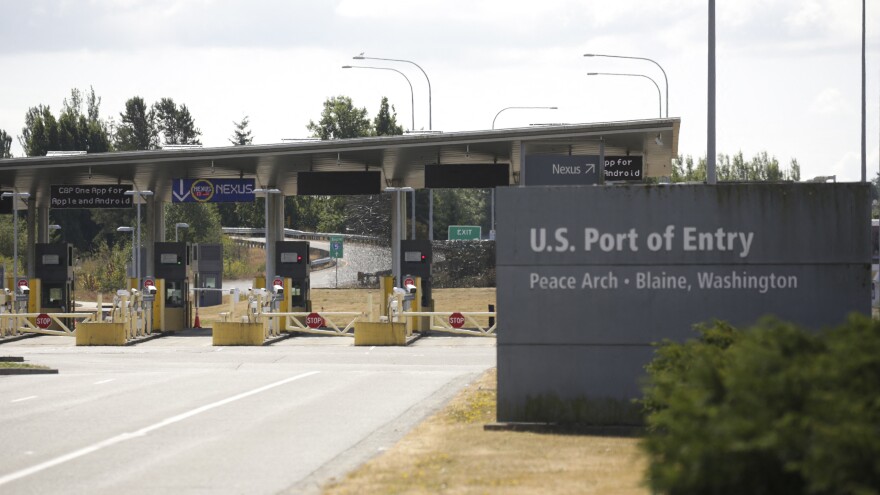The United States is taking a major step toward reopening its borders with Canada and Mexico.
Beginning next month, the U.S. will allow nonessential travelers to enter the country along the long land borders it shares with its two neighbors.
Nonessential entry has been barred since the early weeks of the global COVID-19 pandemic, in March 2020. That's despite the fact that Canada began allowing vaccinated Americans back in in August.
Inbound nonessential travelers will have to prove they are fully vaccinated, along with other more standard paperwork required for legal entry.
The move parallels a recently announced step for international air travelers.
The Biden administration has not announced the exact date that either policy will go into effect, only saying "early November" in a call with reporters. Other details — like whether the U.S. will consider the many Canadians who received doses of two different COVID-19 vaccines as "fully vaccinated" — have not been clarified yet either.
As of right now, people traveling into the U.S. for essential reasons do not have to be vaccinated. Administration officials say they'll begin requiring vaccinations across the board — for both essential and nonessential travel — in January.
The vaccination mandates for foreign travelers are among the latest increasingly strict steps the Biden administration is taking to require COVID-19 shots.
President Biden began by urging Americans to get vaccinated, and then cheering on universities and private employers that imposed their own mandates. Biden then started imposing more limited vaccination requirements on health care workers, the U.S. military and other groups, before announcing that all employees at large workplaces would have to be inoculated or be tested weekly.
All these steps came as the delta variant surged across the United States, despite hundreds of millions of vaccines administered, and billions of dollars directed toward distributing more personal protective equipment, coronavirus tests and other efforts.
Copyright 2021 NPR. To see more, visit https://www.npr.org.








